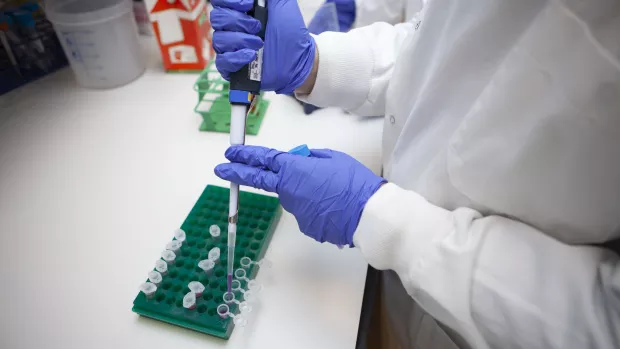How do genes control immune cell behaviour in MS?

- Lead researcher:
- Professor Neil Robertson
- Based at:
- Cardiff University
- MS Society funding:
- £39,798.00
- Status:
- Completed
About the project
The role that genes play in MS is a key area of research. So far we’ve discovered over 200 variants in our genes that are linked to MS. But we don’t understand that much about their effects, or how they contribute to MS susceptibility.
Scientists believe that many of these variants affect how immune cells behave by controlling which genes are active.
Our researchers are using innovative new technology to look at one type of immune cell, called a T cell, in more detail. They want to understand how gene variants affect what is present in the cell, and how it behaves in people with MS.
What happened in this project?
Professor Robertson’s team recruited 56 people with MS and 50 healthy controls when they attended a routine hospital appointment. Their spinal fluid was collected alongside routine samples and the T cells inside it isolated and analysed. Neil is comparing the gene activity of the cells from people with MS to those from people without MS.
What were the results?
16 samples have been processed, so analysis is still ongoing, with work set to be completed by March 2019. Future research will look at how immune cell gene activity in people with MS, causes the immune system to invade the brain and spinal cord.
How will it help people with MS?
This project adds to our current understanding of how certain gene variants affect a person’s risk of MS. The methods established in this project could be used to assess how genes effect multiple different immune cells. Building a greater understanding of the genetic influences in MS, could help to translate into new treatment targets.




